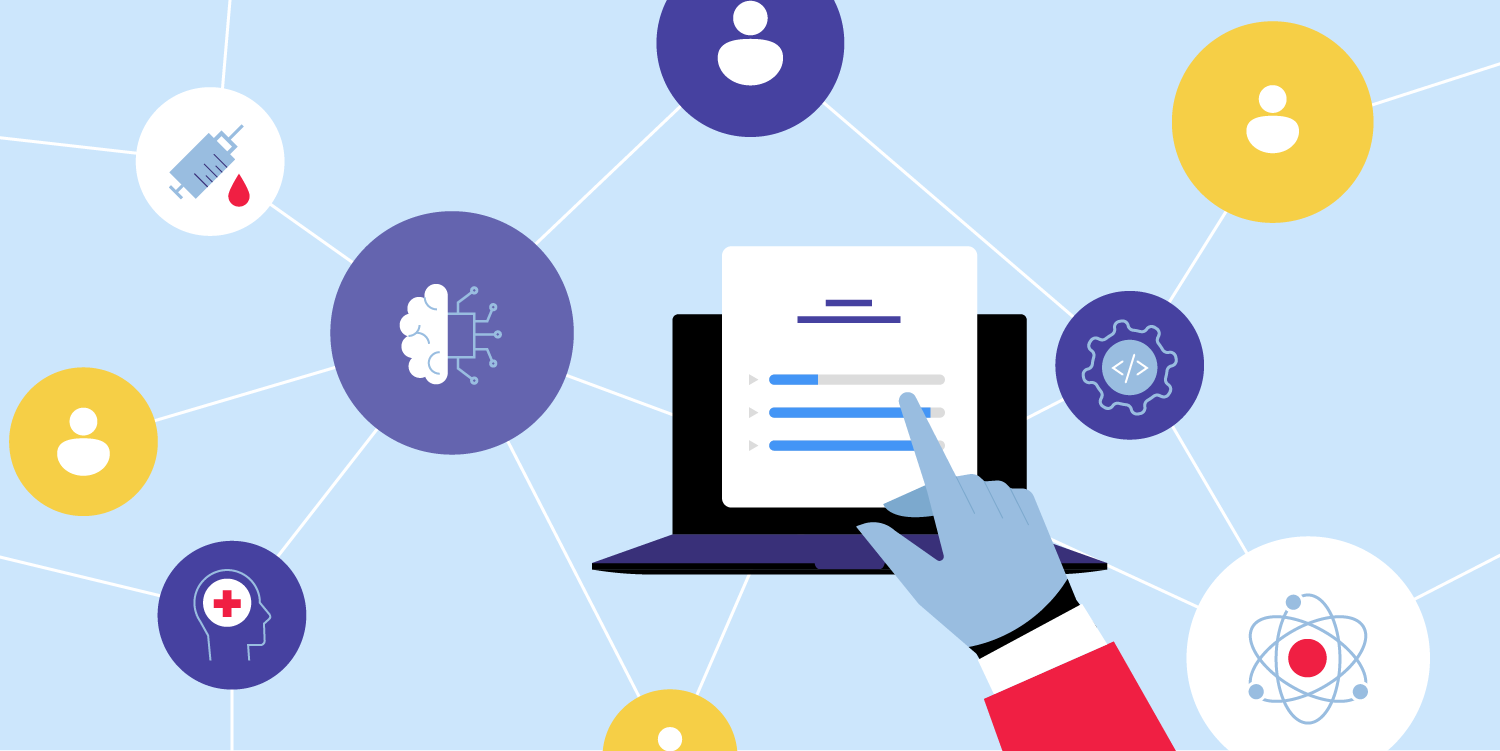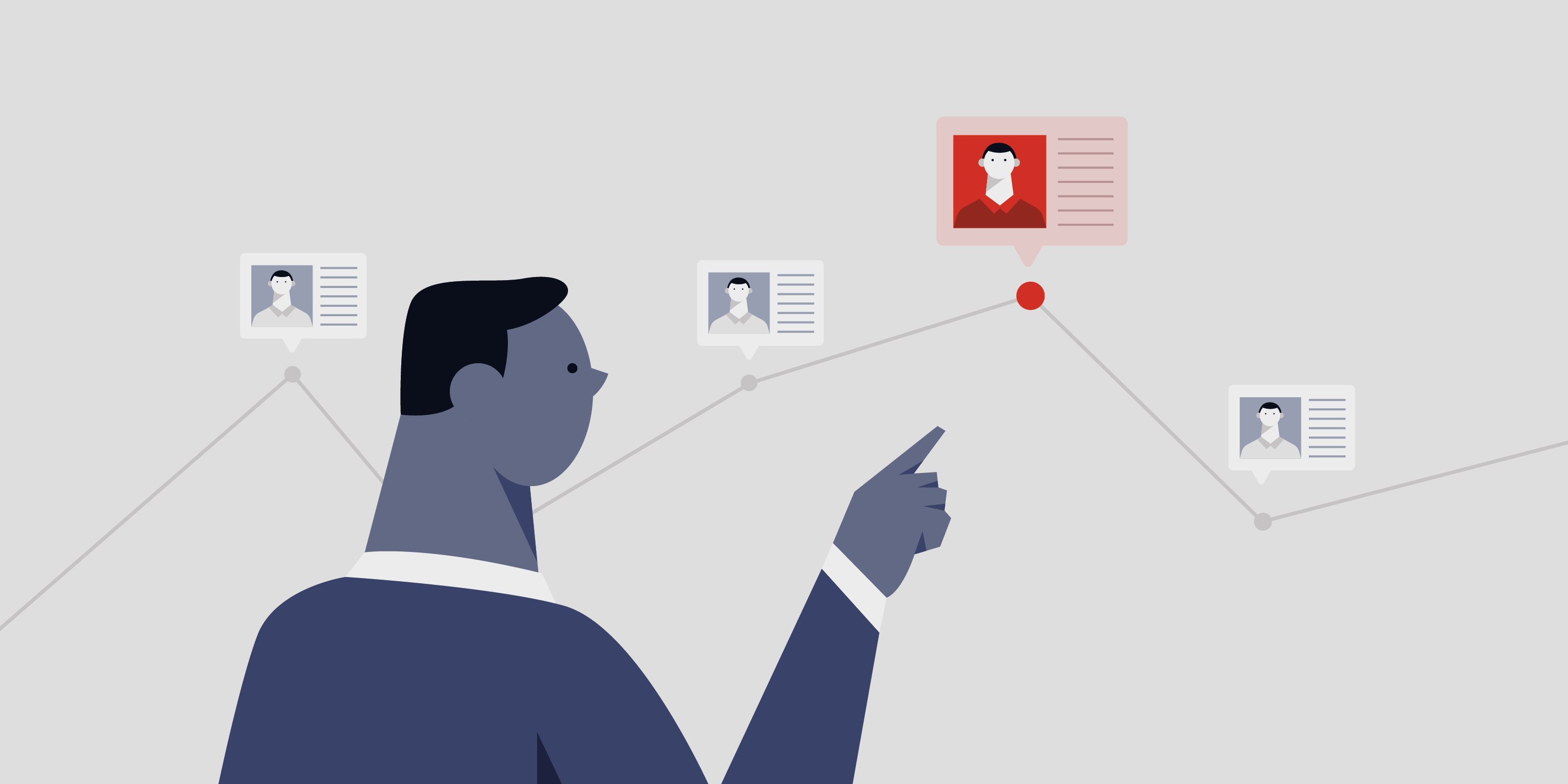What Are the Best Interview Questions to Ask a Candidate?

Josh Spilker is a writer and editor with more than 15 years of experience covering technology, recruiting, and the future of work.
In this article, we’ll consider the best interview questions that you can use in any interview, from entry-level to executive roles and pinpoint what you should be looking for in their responses.
You’ve found a candidate who may be a great match for the team and company.
The next part is interviewing candidates and setting interviews with the team as well.
But what questions should you ask? And how should you change the questions based on the skills and role?
What Are You Trying To Learn About The Candidate In The Interview Process?
The interview is more than a formality; it is an important tool to learn more about the pros and cons of a candidate. And guess what? We’re not as good at interviews as we think. Google has shown that there’s no correlation between an interviewee who scored high and their ultimate performance.
Before asking any questions, think about what you are trying to achieve.
- Learn about specific skills
- Check out potential experiences beyond the resume
- Understand the mindset of the applicant
- Consider how the candidate could fit within your company
- Discover intangibles and soft skills, like grit, curiosity and collaboration
- Understand how they react in certain situations
The last point is the most important, especially if you are viewing a range of candidates with similar skillsets. You’ll be most interested in their mindset and mental frameworks for decision making, rather than trying to see if certain brain teasers will stump them.

1. Question: What are some obstacles you’ve faced and how did you overcome it?
Key Trait You’re Looking For: Perseverance.
With this question, you are trying to understand their perseverance and steadfastness. You are considering how they approach problems and if they are easily deterred. Once you hear the response, you must think about their situation, the difficulty of it and how it may relate to your organization.
Researcher Angela Duckworth found that perseverance and grit is an attribute of high-performer and that struggle is “not a signal for alarm.”

2. Question: Describe when you had to improve a piece of work after feedback.
Key Trait You’re Looking For: Motivation and resilience.
How does the recipient receive feedback?
That’s an important component of working together on teams and with managers. With their answer, consider not only how they responded, but also how they felt. See if they sought understanding and did not follow their first reaction.

3. Question: How have you used data to make a decision?
Key Trait You’re Looking For: Solutions versus conventional wisdom.
Data drives many of the decisions in a forward-thinking, disruptive organization. Even a three percent increase or one percent compounded year over year can prove beneficial. You want to determine if this candidate will only go with conventional wisdom or is willing to consider other solutions especially when it is supported by data and research. The candidate should be able to synthesize multiple inputs from different sources to make an informed decision.

4. Question: What's the background of what you were previously working on and what were your specific tasks?
Key Trait You’re Looking For: Context of experience.
This question is part of STAR interview process, which reveals background and context. STAR stands for situation, tasks, action and results. Asking about background and tasks helps you understand if those actions are transferable even if the specifics are different.

5. Question: How have you made a measurable impact on a role or a project?
Key Trait You’re Looking For: Results.
This is a great segue from the questions about data into asking the candidate for data on how they have made a difference with their work. It shows that the candidate was able to track the results of their work and display the improvements or changes. Understanding impact shows that the candidate was able to translate the business objective and strategy into real, measurable results.

6. Question: What organization or business do you think is doing well?
Key Trait You’re Looking For: General interest and values.
This may be a great follow-up if you are interviewing an entry-level person or someone with lots of talent but little experience. You can see their perspective and understand what they value as a large and big impact. It’s also a great way to see how knowledgeable or curious thy are--especially if they come back with an unexpected or little known example.
It shows awareness of the news, business and general cultural trends.

7. Question: Can you discuss a business that’s doing badly? What are its main problems and what would you do to fix them?
Key Trait You’re Looking For: Solution-focused thinking.
Similar to the question about data, this answer reveals critical thinking about how different businesses can recover and lets the interviewer take a peek into the mind of the candidate. It gives them an opportunity to show off their big-picture strategy ideas for fixing rather than only concentrating on problems.
You are looking for solutions and tangible next steps. From here, you could present a problem in your own company for the candidate to solve.

8. Question: What’s hardest for you when working on a team? Describe a time you worked on a difficult team and how did you respond?
Key Trait You’re Looking For: Teamwork
Teams involve more than one person; that’s why they are teams. A Stanford study showed that people who worked in teams often persisted longer in the task than if they were alone, and had more enjoyment.
Overall teams are a good thing. Therefore, it’s a good idea to learn how a new candidate will perform on a team with others. Cross-functional teams are popular options as well, so understanding how a candidate may interact with people of other disciplines will be interesting, too.

9. Question: Talk about how you collaborated on multiple projects with a short deadline.
Key Trait You’re Looking For: Project management.
This question is about productivity and project management. You are looking for clues about how the candidate prioritizes their work, the questions they asked superiors and when they did--or did not--ask for help. The candidate will reveal the systems they have in place to accomplish their goals without you specifically needing to ask.

10. Question: How do you try to be the best you can be?
Key Trait You’re Looking For: Curiosity and self-improvement.
This question aims for continual improvement and life-long learning. In a high-level position, you’re looking for a curious person who is interested in new ideas and concepts. Career development and life-long learning are important aspects of employee engagement, especially for millennials. More than 80% of millennials in a Society for Human Resource Management survey named career development as an important part of their career.
However, just because you offer learning development does not mean that your employees will take advantage of it. Instead, look for employees who are actively pursuing learning development on their own. You want people who are seeking out knowledge and new frameworks even if it isn’t within the frameworks of the organization. Then when you do offer learning development, it’s to help guide and refine, assured that you have smart people pursuing knowledge.

11. Question: Do you consider yourself lucky?
Key Trait You’re Looking For: Humility and reactions to adversity.
This is a favorite question of Neil Roseman, former tech VP at Amazon. With this question, you understand how the candidate handled adversity and the processes (or lack thereof) to replicate success. You’re also looking for humility, which is a strong leadership trait.
An arrogant candidate will take credit for the accomplishments, but not comment or reference how other team members contributed to their success. They will talk about how collaboration helped solve problems or how they worked well with others on the team.

12. Question: How would colleagues describe you?
Key Trait You’re Looking For: Strengths and weaknesses.
The goal of this question is to uncover the strengths and weaknesses of the applicant without asking that tried-and-true question. With formatting the question this way, the candidate is likely to be more honest and provide an assessment of strengths and weaknesses through a question they were not necessarily expecting.

13. Question: How is this person during the interview?
Key Trait You’re Looking For: Culture fit and professionalism.
Trick question! Because this one is for you, the interviewer. And it’s not really a question, but an observation.
During the interview, you are looking for signs of composure and etiquette. How are they handling your questions? What are their mannerisms? Are they poised and professional? Consider the demeanor that you want for your company and your employees and see if this candidate possesses those characteristics.
14. Question: Do you have any questions for me?
Key Trait You’re Looking For: Willingness to learn
Yes, this is an important question to ask. It’s not necessarily important what they ask about (though that is interesting!) but more to the point that they asked anything at all. This shows curiosity and a willingness to learn more. It shows that they have an interest in the business and the person interviewing them.
Conclusion: Customize The Most Common Interview Questions
These questions are only a foundation. You should ask more questions than what is listed here. Even with this set of great interview questions, don’t expect to ask all of these. You will need to add several more that apply to your specific situation, industry and the roles you are hiring for.
But with all of thee questions and answers, you are looking for interviewees who are well-composed, creative and efficient with their responses. You are most interested in thought processes, talent, and relevant experience, not necessarily that they answer each question exactly right.
There is no perfect candidate. The interview process is only one tool during the recruiting process to find candidates who will fit best with your company and team.
- What other great interview questions would you add?
- What successful interview strategies have you used in the past?
- What is the interview process at your company?

Josh Spilker is a writer and editor with more than 15 years of experience covering technology, recruiting, and the future of work.






